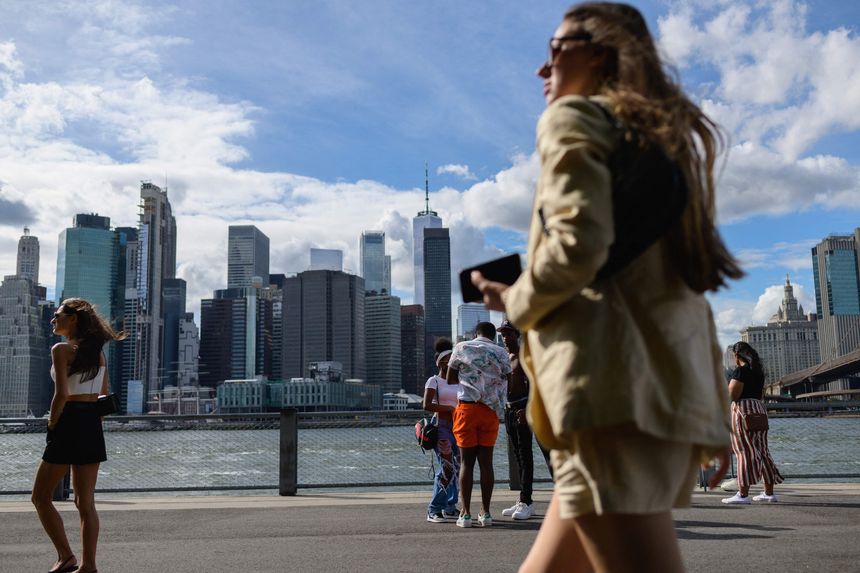Talk to most people who have tested positive for COVID-19 over the past couple of years and their experience of it seems to fall into one of two distinct camps.
There are those who became acutely ill with the disease. As we know all too well, significant numbers from this group ended up in hospital, mainly suffering from severe respiratory problems. Tragically, more than 170,000 people in the UK have lost their lives to the disease to date.
And then there are those who experienced much milder symptoms, if any at all. Especially among younger age groups, COVID’s effects have often been no more serious than a heavy cold or, at worst, flu. As more and more people have been vaccinated, the numbers experiencing these milder symptoms has grown.
But then there’s another, third group. One which has struggled to have its voice heard throughout the pandemic. These are people who have continued to experience symptoms long after experts tell us the initial infection runs its course. These are the people who are afflicted by what’s come to be known as Long COVID.
What is Long COVID?
What’s startling is that this is far from a small group. According to figures from the ONS, around 1.3 million people in the UK were self-reporting symptoms of Long COVID by the end of 2021.
Medical science has yet to precisely pin down exactly what Long COVID is, what causes it and how it presents in a patient. But the most common symptoms seem to be extreme fatigue, shortness of breath and so-called ‘brain fog’ lasting longer than 12 weeks after infection.
If you suspect you have Long COVID, the bad news is that there are currently no known treatments and nobody knows how long it might last. But there are now more than 90 assessment centres across the UK set up to study the condition and provide support to patients.
In the short term, the priority is very much on learning to manage and cope with the symptoms of Long COVID. But that’s not an easy task, with potential knock-on effects on every area of your life. What do you do about work if you are too tired to focus on anything for longer than a few minutes? What about family life? What about booking a holiday? Will you be well enough to travel in a few months time, and is it safe to do so?
Don’t rush things
The first thing to say is that there is no point trying to force things with Long COVID. If you’re struggling to get out of bed, thinking about planning a holiday is a step too far. It will only serve to increase your stress levels and make your symptoms worse.
If and when you are feeling up to a change of scenery, take your time. As this account of a travel writer heading to the south of France to recuperate from Long COVID demonstrates, travel itself is likely to make you relapse. Don’t expect to be marching around the tourist hotspots and soaking up the local nightlife. Give yourself time to recover after your journey, and aim for a break that is built around rest and relaxation.
For example, you should be wary about taking shorter breaks. If the travel does knock you back, you could end up spending the whole duration suffering. Only to have to travel home and do it all over again. With a longer break, you can plan for days of complete rest and still have time to enjoy yourself.
Listen to your body and plan accordingly
You are in the best position to know what you can and cannot manage. Nevermind what you want to do – listen to your body and do what it says.
Unless you really are starting to feel like your old self again, focus the whole purpose of your trip on recuperation and recovery. There is a lot to be said for a change of scenery in helping people recover from illness. But you have to give yourself the space for it to work.
If, like many people suffering from Long COVID report, you are struggling to sleep properly, avoid long haul journeys where you have a major change in time zone to contend with. Avoid late night flights that will further disrupt your body clock. If getting up and about feels beyond you, roll with it. Pick a pretty holiday rental or a hotel with plenty of creature comforts, and look forward to just being still for a while.
Take care with travel insurance
Normally if you have a long term medical condition, you have to declare it when you are buying travel insurance. This can make policies more expensive, although if you go to a specialist provider you will get medical travel insurance tailored to your needs.
The situation with Long COVID is something of a grey area, however. Because it is not yet understood well enough to be formally diagnosed, it doesn’t technically count as a condition you have to declare to insurers. It wouldn’t officially show up on your medical records if a claim was being investigated, for example.
However, given that Long COVID does make you medically vulnerable, you should take care to make sure you are properly protected. Medical treatment for foreign visitors is expensive in most countries. If you have a severe relapse and need to be admitted to hospital, you could face a huge bill.
It’s therefore advisable to have an honest conversation with your insurer about your condition. Ask them to confirm in writing that they will cover you with symptoms of Long COVID. And opt for a comprehensive policy with a high level of medical cover.



No Comment